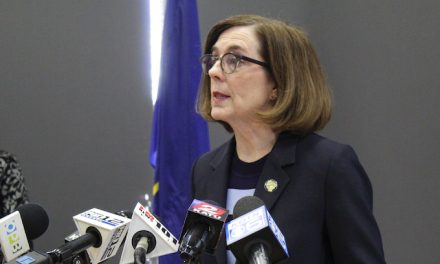U.S. stock prices plummeted Friday after the Bureau of Labor Statistics released a report revealing that consumer inflation rose to an annual rate of 8.6% in May, the sharpest increase since 1981.
“The increase was broad-based, with the indexes for shelter, gasoline, and food being the largest contributors,” the BLS inflation statement said Friday.
The Nasdaq Composite fell 3.52% on Friday for a weekly dip of about 5.6%, and the S&P 500 fell 2.91% for a weekly dip of about 5.1%. The Dow Jones Industrial Average fell 880 points, or about 2.73%.
The declines come just two weeks after the three indexes made some gains, breaking the longest streak of weekly losses since 2001. The S&P 500 has been hovering just above bear market territory for weeks and the Nasdaq has been in a bear market since April 29.
The interest rate for government-issued treasury bonds, a benchmark for setting risk-free consumer interest rates, rose on Friday. The treasury yield curve, which moves opposite that of bond price, is watched closely by investors and the Federal Reserve as a gauge of inflation.
The two-year rate rose to more than 3% for the first time since 2008, which Financial Times noted is a “psychologically significant level.” The 10-year treasury yield rose to more than 3.1%.
The five-year treasury rate passed that of the 30-year bond, which the outlet noted is “an indication the market believes that the Fed’s campaign of raising rates could tip the U.S. economy into recession.”
“So much for the idea that inflation has peaked,” Bankrate chief financial analyst Greg McBride told CNBC.
“Any hopes that the Fed can ease up on the pace of rate hikes after the June and July meetings now seems to be a longshot. Inflation continues to rear its ugly head and hopes for improvement have been dashed again.”
Analysts for Barclays said in a research note Friday that the central bank “now has good reason to surprise markets by hiking more aggressively than expected in June.”
“We realize it is a close call and that it could play out in either June or July. But we are changing our forecast to call for a 75 [basis point] hike on June 15,” the analysts said.
The last time the Federal Reserve raised interest rates by 75 basis points was in November 1994, CNN reported.
Sung Won Sohn, a professor of finance and economics at Loyola Marymount University, told the outlet that “the probability of a recession in the next year or so is rising.”
“Inflation is eating away at consumers’ purchasing power,” Sohn said.
President Joe Biden on Friday acknowledged in a speech on the U.S.S. Iowa that “Americans are anxious” about the rising inflation “with good reason.”
“America can tackle inflation from a position of strength unlike any other country in the world, because every country in the world is getting a big bite and piece of this inflation — worse than we are in the vast majority of countries around the world,” Biden said.
“But make no mistake about it: I understand inflation is a real challenge to American families. Today’s inflation report confirmed what Americans already know: [Russian President Vladimir] Putin’s price hike is hitting America hard.”
Copyright 2022 United Press International, Inc. (UPI). Any reproduction, republication, redistribution and/or modification of any UPI content is expressly prohibited without UPI’s prior written consent.
—-
This content is published through a licensing agreement with Acquire Media using its NewsEdge technology.



















STEP ONE, ruin the country’s economy.
DONE!